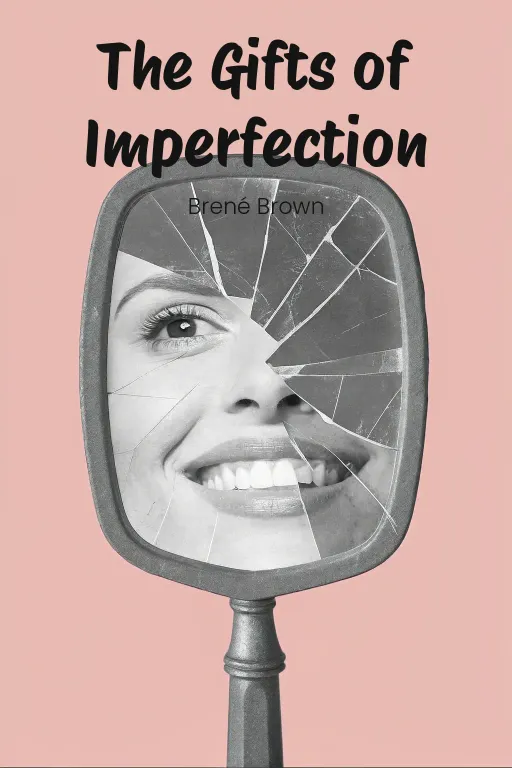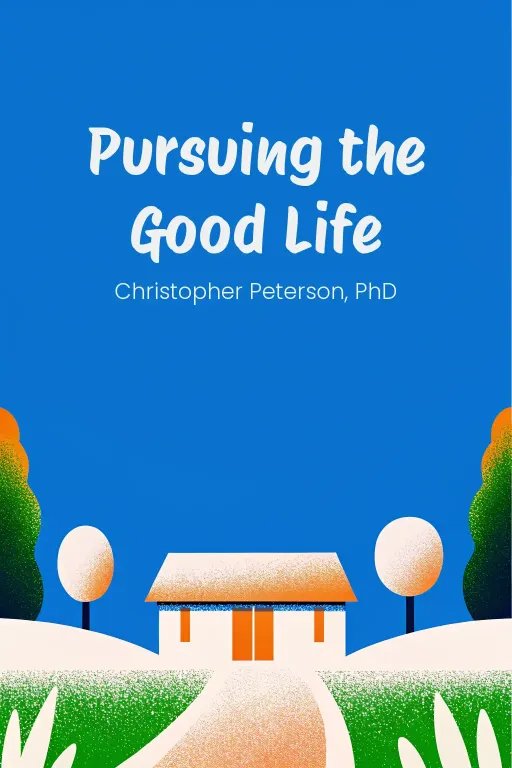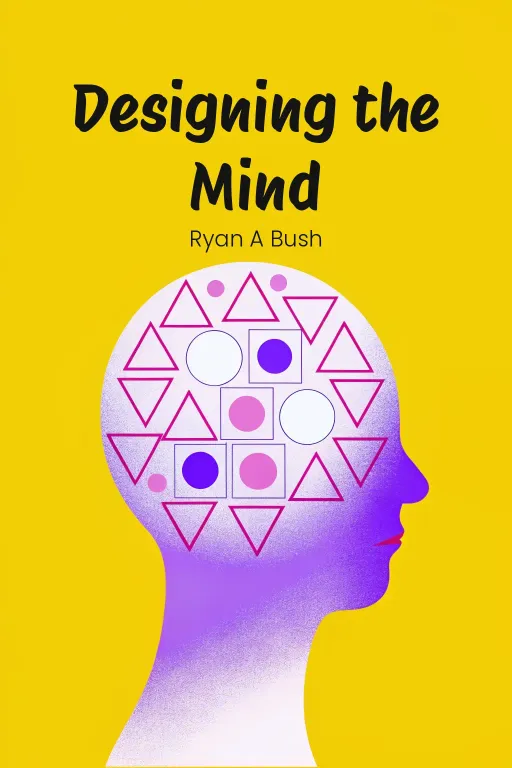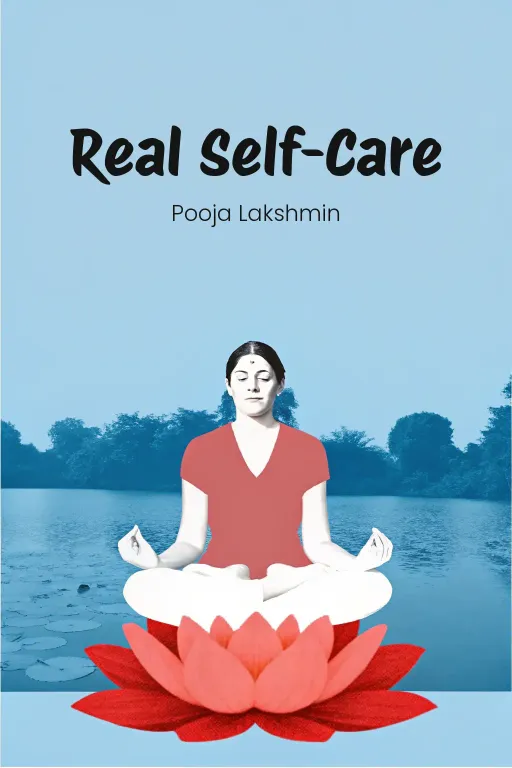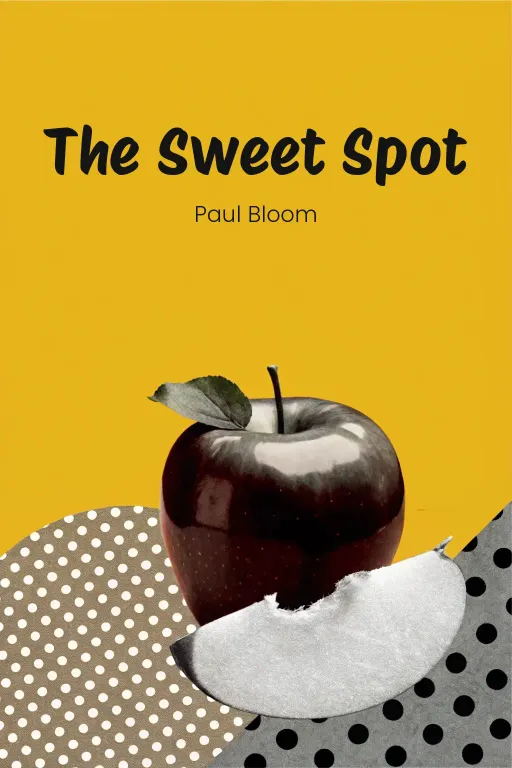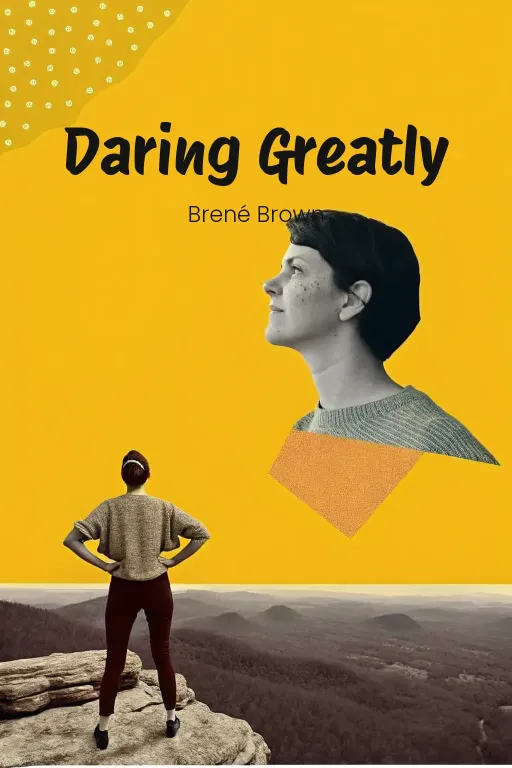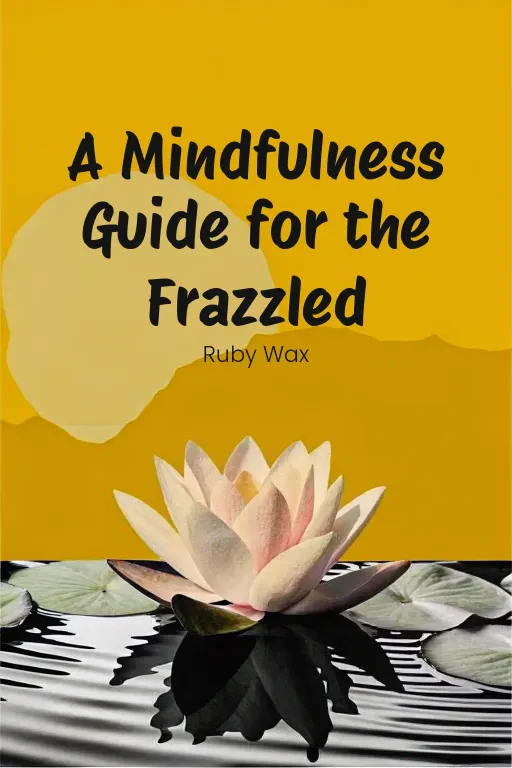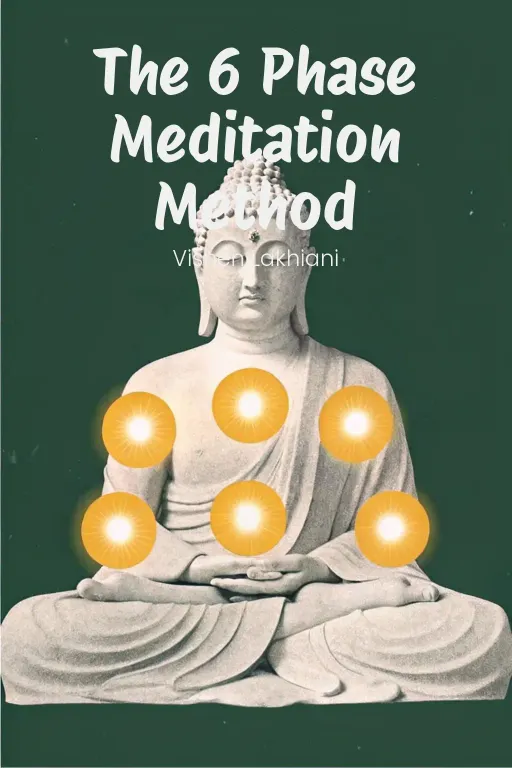
Belief Power: Shape Your Own Reality
Podcast by The Mindful Minute with Autumn and Rachel
How Your Mindset Can Change Your World
Belief Power: Shape Your Own Reality
Part 1
Autumn: Hey everyone, welcome back to the show! Let me throw a question out there: Ever feel that jolt of energy after accidentally drinking decaf, thinking it was regular coffee? Or maybe you’ve heard stories about sugar pills actually curing headaches? It seems like magic, but it's really the power of our minds at play. Rachel: Yeah, or as I like to think of it, our brains playing tricks on us! But you’re right, Autumn. This whole idea that our expectations can shape reality is pretty wild, isn’t it? It's like we're pre-programming our own outcomes. Autumn: Absolutely, Rachel! That's the crux of The Expectation Effect. The book examines how our beliefs—about our health, feelings, even aging—can literally shape our reality. It's about connecting mindset and wellbeing, and it poses this really interesting question: "What can we change simply by tweaking our expectations?" Rachel: Okay, so today we’re going to break down this idea, bit by bit, right? We'll kick things off with the fundamentals—the sheer force of expectation. Then, we'll dig into how it influences health. Autumn: Exactly. We'll explore everything from managing pain to boosting physical performance. Rachel: After that, we’re diving headfirst into stress and emotions. And trust me, the idea of reframing stress could be a total game-changer. We'll also look at how expectations on a larger scale affect entire communities. Autumn: Right, it's all connected. Rachel: And, because we wouldn’t want to leave you hanging, we're going to give you some practical strategies for putting all this into action. Think of it as a mental survival kit for reshaping your world. Autumn: So, no matter where you're tuning in from, get ready! This episode is going to challenge the way you perceive your mind, your body, and everything around them. Rachel: Or, at the very least, get you wondering if your brain’s just a “really” good con artist. Either way, let’s jump in.
The Expectation Effect
Part 2
Autumn: Okay, so let's dive right into the core of the expectation effect. Essentially, it's about how our beliefs actively shape our reality. It’s not just passively receiving information; our brains are constantly predicting, adjusting, and creating our experiences based on those predictions. Rachel: Hold on a sec. Are you saying my brain is like some kind of self-fulfilling prophecy machine? Like if I believe I'm clumsy, my brain will make sure I trip and fall? Autumn: Something like that! The science boils down to predictive processing. Think of your brain as an architect. It's constantly using your past experiences, beliefs, and knowledge to predict what's coming next. And those predictions then influence your physiological and emotional responses. Sometimes even more than the actual, direct stimuli. Rachel: Right, so it’s like… my streaming service predicting I still like pop music from the 2000s. But instead of music, it’s affecting how I think, feel, and even how well I perform physically? Autumn: Precisely! And just like those music algorithms can sometimes misread your mood, your brain can also get stuck in outdated or harmful predictions. That’s where negative beliefs turn into self-fulfilling prophecies. Rachel: You mean like, when people believe they're awful at math, and that belief makes them perform poorly? Autumn: Exactly. And it goes even deeper. Did you ever hear about that hotel cleaner study? It really highlights the power of reframing your beliefs. Rachel: Oh, I love that one. Wasn’t it about how these cleaners were doing really hard physical work every day, but they didn't actually think of it as exercise? Autumn: Bingo! Half of them were told their daily routine actually met or exceeded the recommended guidelines for physical activity. The other half got nothing. And get this—within weeks, the group who reframed their work reported tangible health benefits, like lower blood pressure and weight loss. Rachel: So they didn’t change anything about what they were doing, it was all about how they thought about it. Their new expectation that "Hey, my job is good for me" caused an actual, physical change. That’s wild! Autumn: That's the expectation effect in action! It bridges the mind and body. And it's not just about health. Another great example is the placebo effect. Rachel: Ah yes, good old sugar pills. Let’s talk about those. I’m fascinated by the idea that you can give people what’s essentially a harmless pill, tell them it'll cure their headache, and boom—it actually works! Autumn: It really is amazing. And it's not just psychological, it's physiological. Studies have shown that when people believe they're getting treatment, their brain releases actual chemicals – endorphins and dopamine - that mimic the effects of real medication. Rachel: Of course, then there’s the flip side... the nocebo effect, right? That’s when you believe something bad will happen, and, surprise surprise, it does. Like when people hear about potential side effects from a medication and then experience them even if they're taking a placebo! Autumn: Exactly! Both placebo and nocebo hinge on the same basic principle: your body responds not just to objective reality, but to your belief about reality. It’s really quite astonishing. It also raises some pretty big questions about just how much control we really have over our own experiences. Rachel: Okay, but before we get carried away and start thinking we can manifest a sports car just by believing in it hard enough, there have to be limits to this, right? Like, no matter how much I expect to be an Olympic athlete, my knees are going to disagree pretty strongly. Autumn: That's a fair point. It's not about pure wishful thinking; it's about aligning expectations with realistic, actionable changes. Those hotel cleaners weren't imagining benefits from thin air. Their physical work was already beneficial, their shift in expectation simply unlocked those benefits in measurable ways. Rachel: So the expectation effect isn’t just about slapping a "happy thoughts" sticker on everything. It’s about recalibrating how we see and interpret what’s already there? Autumn: Exactly, Rachel! And when we remember predictive processing, it starts to really make sense. Change your brain’s predictions, and you can literally change how it tunes your body and emotions to match. It’s less “fake it ‘til you make it” and more "see it differently, feel it differently." Rachel: Okay, prediction wizard, let's test this theory. If I expect stress to fuel my productivity rather than make me want to doom-scroll, does it actually work? Autumn: <Enthusiastically> Oh, you're onto something there. Expectation and stress are deeply connected, and yes, reframing stress is one of the expectation effect's most powerful tools. But I think we're about to dive into a whole new chapter there – how it shapes our emotions and resilience. Rachel: Got it. I’ll hold onto my stress hypothesis for now. But seriously, this entire framework is like we're all living inside this big thought experiment where the rules are made up by our own expectations.
Health and Healing via Expectation Effects
Part 3
Autumn: Building on that solid foundation, the book “really” dives into how expectations play out in our day-to-day lives. Today, I thought we could zoom in on health and healing, which, honestly, is where the expectation effect gets “really” interesting. It's not just theory; it's about real-world outcomes. Our health is as much about what we expect as it is about the treatments we receive, isn't it? Rachel: Right, so today we're playing doctor, but our prescription is all about managing expectations, huh? Let's start with the big one everyone's heard of: the placebo effect. Autumn, how does that actually work? What happens when someone takes a sugar pill and suddenly feels better? Autumn: It all comes down to the power of belief, Rachel. When someone takes a placebo – you know, an inactive treatment like a sugar pill – they expect to feel better. That expectation actually triggers genuine physiological responses. Take pain management, for instance. In studies, people given a placebo often report significant pain relief, even though they're not getting any real medication. Rachel: That's wild. You're telling me belief alone can switch off pain signals? Does the brain just ring up its internal pharmacy and say, "Code red! Release the endorphins; we've got a placebo situation!"? Autumn: More or less, yes! Brain scans actually show real changes in the areas related to pain perception when someone takes a placebo. It's not just endorphins, either; there's dopamine, changes in brain connectivity – a whole cascade of neurochemical shifts. It’s the brain basically aligning its predictions – 'this is going to help' – with the body's response. Rachel: Okay, but how far does this go? Are we talking about curing a headache, or could you placebo your way to, say, recovering from a broken leg? Autumn: There are limits, of course. A placebo won't mend a broken bone. But within certain physiological systems – pain, stress, immune responses, even – it can have a measurable impact. And here’s the real kicker: the treatment itself doesn't work in isolation. A patient's belief in it plays a huge role. Rachel: That's kind of mind-blowing. So, even if my doctor's a brilliant surgeon, but I secretly think they’re a quack, my recovery might be worse than someone who trusts their surgeon implicitly? Autumn: Exactly, Rachel. Tons of studies show that patients who trust their healthcare provider or feel more confident in their treatment plan tend to have better recovery outcomes. It’s not just about the procedure itself; it’s the entire experience of care, including expectations, that affects the result. Rachel: That's honestly both reassuring and terrifying. Like, no pressure, but my own mindset could be screwing with my health outcomes? Autumn: Right? And that leads us to the darker side of this: the nocebo effect. Because the same expectation pathways that can help us heal can also harm us. Rachel: Ah, here we go. I knew there’d be a catch! Lay it on us, Autumn – what is the nocebo effect? Autumn: It’s basically the flip side of the placebo. "Nocebo" comes from the Latin "I shall harm," and it's what happens when negative expectations cause harmful effects. A classic example is when people experience side effects from a medication, even if they're taking a placebo. Just hearing about potential side effects can make them manifest in a very real way. Rachel: Okay, so you're saying just the idea of a pill causing a stomachache could actually cause a stomachache, even if the pill is harmless? Autumn: Correct. Our bodies are incredibly sensitive to expectation. And it’s not just psychological – it’s physiological. The mere anticipation of something negative can disrupt bodily processes. For example, stress hormones like cortisol can spike, messing with everything from digestion to immune function. Rachel: That's unsettling. But I heard there's an even more dramatic example – this "bone-pointing" thing from the book? Autumn: Oh, yes. This is one of the most striking cultural examples of the nocebo effect. Among certain Aboriginal tribes in Australia, there’s a practice where a shaman points a bone at someone while essentially invoking a curse. The victim, believing completely in the power of that curse, often becomes physically unwell – even dying in some documented cases. Rachel: Wait a minute. A shaman points a bone, and they... die? How? There’s no poison, no physical injury, right? Autumn: Exactly. Researchers believe the overwhelming fear and expectation of death trigger such an extreme stress response in the body that it leads to fatal organ failure. It's like their system is so overloaded with fear hormones that it just shuts down. Rachel: So it’s like your body follows the script your brain writes, no matter how irrational the script seems? Autumn: Precisely. And while bone-pointing is a more extreme example, the nocebo effect happens everywhere. In modern healthcare, patients who are told about the potential risks of a treatment can experience complications purely from expectation. That’s why the language healthcare providers use is so crucial; it shapes how patients anticipate their outcomes. Rachel: So you're saying my doctor, by casually mentioning a 20% chance of mild side effects, might accidentally cause some of those side effects? Autumn: Potentially, yes. That’s why many health professionals are now focusing on more positive framing. Instead of saying, "20% of patients experience fatigue," they might say, "80% of patients tolerate this treatment without any issues." It’s the same information, but the focus is on a more optimistic outcome. Rachel: I like that. It's not sugarcoating; it's just... strategic optimism? Autumn: Exactly. And that leads us to the broader idea of leveraging positive expectations intentionally. Beyond just rephrasing risks, there are things anyone can do, like self-affirmation practices – statements that reinforce resilience, such as, "I've overcome challenges before, and I can do it again." Rachel: Okay, so just to recap: we’ve got placebos for the optimists, nocebos for the pessimists, and a big flashing sign that says, "Your mindset matters!" Seriously, Autumn, this changes how I see health. My body isn’t just reacting; it’s collaborating with my beliefs. Autumn: Exactly! And that collaboration can be incredibly empowering, once you understand how to calibrate those beliefs. It's less about wishing for health and more about strategically aligning our expectations to allow our body's natural mechanisms to work better. Rachel: So the takeaway so far: your mind’s driving the car, your body's just the passenger, and whether it's a smooth ride depends a lot on the map you're using.
Emotions, Stress, and the Expectation Effect
Part 4
Autumn: So, after establishing how expectations impact our health, the book moves into how they shape our emotions and cognitive functions. I think shifting our focus to emotions, stress, and the expectation effect really highlights how personal emotional management is linked to broader psychological principles. It's all about how powerful our perceptions can be. Rachel: Emotions and stress, right? Sounds about right! Two things I feel like I'm constantly battling, with neither of them listening to a word I say! So, Autumn, where do “expectations” fit into this emotional roller coaster that is my brain? Autumn: Right, we're not suggesting we should ignore stress or just blindly "think positive." The idea is to reframe stress and our emotional experiences. It's about understanding that how we interpret our feelings dramatically affects the outcomes. Rachel: Okay, I'm intrigued. Are you saying I can chill out about how stressed I am? That this stress about stress doesn’t need to stress me out?! Autumn: Precisely! There’s this fascinating study by Jeremy Jamieson, where students prepping for the GRE—naturally, very anxious— were split into two groups. One group was taught to see their stress responses, like a racing heart, as signs of energy and readiness. The other group? Nothing. Rachel: Let me guess, the "stress is energy" team crushed the test, right? Autumn: Basically! The group that saw their anxiety as helpful did better on the test and showed healthier physical responses. It's not just a mindset thing; the body responds accordingly. The students' belief that stress was empowering helped them channel that tension into focus. Rachel: Wow. So, stress isn't just this evil force, it's more like an unruly kid that just needs some guidance? Autumn: That's a great way to put it. We often label stress as the enemy, but reframing it weakens its power. Hans Selye’s work on stress comes into play here too – sure, chronic stress is bad, but how we perceive stress dictates whether it drains us or fuels us. Rachel: Makes sense, because if stress was inherently bad, wouldn’t we have died out back in our caveman days when everything, from sabertooth tigers to a berry shortage, was a crisis? Autumn: Precisely! Stress is adaptive; it's there to prep us for challenges. The problem is when we only see it as harmful. Reframing it as a tool, not a threat, lessens its bad effects. Rachel: Okay, but let’s play this out. Imagine someone with a high-pressure job and family obligations. Telling them to "reframe their stress" might sound… a bit simplistic, maybe even dismissive. Autumn: That's fair, Rachel. This isn't magic, and it doesn't erase real struggles. But it offers a mental strategy to deal with those struggles better. Like, reminding yourself that physical stress signs—pounding heart, sweaty palms—are your body getting ready, not failing you. Rachel: Right, but beyond just reframing stress, doesn’t the book take aim at our cultural obsession with happiness? Like, are we messing ourselves up chasing constant joy? Autumn: Yes! it’s one of the most profound and counterintuitive ideas. Researchers like Iris Mauss have found that the more people aim for constant happiness, the more unhappy they become. Think of it this way: if happiness is the "default setting," any deviation feels like failure. Rachel: You mean like when you’re having a terrible day, and the internet’s going crazy with “Smile more!” posts, and you just want to throw your phone at the wall? Autumn: Exactly. The pressure to avoid negative emotions has created psychological nocebo effect. Instead of dealing with or accepting, say, frustration or sadness, people feel bad for even experiencing those emotions, which makes things worse. Rachel: So, we’re walking around with a checklist of feelings, and every unchecked box makes us wonder if we’re doing life wrong? Autumn: Exactly. That’s where the expectation effect offers something valuable. Instead of aiming for happiness at all times, it's about embracing the entire spectrum of emotions as a part of life. Negative emotions aren't roadblocks; they're opportunities for growth, reflection, maybe even connection. Rachel: Alright, but what does “embracing negative emotions” look like in practice, because I’m imagining someone saying, "Oh, great, I feel awful! How productive.” Autumn: Not quite, Rachel. It’s more about being mindful and reframing. When we accept feelings without judging them—say, accepting sadness as a normal reaction to loss—we're less prone to spiraling. Things like mindfulness meditation are tools to observe emotions without reacting. Rachel: So, instead of fighting the emotion, you sit with it… like an unwelcome house guest you can’t kick out? Autumn: Exactly! It’s not just mindfulness. It’s also about reflecting on our core values, something we often skip. When you’re stressed, reminding yourself what matters most can center you. It reminds you why you are tackling that challenge. Rachel: I like that—it sounds more practical than just chasing happiness. It kind of recalibrates your emotional compass to focus on meaning over mood. Autumn: Right! Precisely the point. Chasing happiness is fleeting, but meaningful experiences build resilience and fulfillment. Accepting the ups and downs of emotions helps us deal with things with clarity and adaptability. Rachel: Okay, Autumn, for someone listening and thinking, "This sounds good, but what's the real takeaway when negativity rears it’s ugly head?" What's in our toolbox here? Autumn: Good question. Here’s the breakdown: First, stress reappraisal— remind yourself that those anxiety symptoms are signs of readiness. Next, mindfulness—notice your emotions without immediately reacting. Then, think about your core values. Lastly, avoid thinking of happiness as the endgame, focus on the journey. Rachel: So, basically, don’t fight the stress or the sadness. Instead, change their roles. They're not villains; they're just misunderstood characters in your story. Autumn: You nailed it, Rachel! By rewriting the script, we’re better equipped to control our lives. And that’s the power of the expectation effect with emotions—it’s not about avoiding discomfort, but turning it into a chance for growth.
The Collective Impact of Expectations
Part 5
Autumn: So, moving beyond just individual emotions, the book then looks at the collective impact of our expectations in social settings. This part is really fascinating! It builds on everything we've discussed—how expectations affect our health and feelings—but now it's on a group level, showing how shared beliefs can ripple through entire communities. Rachel: Hold on, so you're saying expectations don't just control my daily stress or how healthy I am, but they can actually mold society itself? That's both exciting and, well... a little scary. Autumn: Exactly! This section dives into group stuff, like mass psychogenic illnesses and social contagion. These things really show how strong shared expectations can be. Societal fears, worries, even beliefs, can become self-fulfilling on a huge scale. Rachel: Okay, let's break this down. Mass psychogenic illness... is that when a bunch of people start feeling sick even though there's no real reason, simply because they all think they're sick? Autumn: Precisely. A really good example is what happened in Portugal back in 2006. It all started with a popular teen soap opera called Morangos com Açúcar—or Strawberries with Sugar. Rachel: A TV show? What, were people getting sick from the acting? Autumn: Not quite! In one episode, characters got a fictional virus with symptoms like trouble breathing, dizziness, and rashes. Shortly after, teenagers all across Portugal—about 300 of them—started showing the exact same symptoms. Schools were in chaos, and everyone panicked trying to figure out what was happening. Rachel: So, what did they find? Was it like bad cafeteria food or something in the environment? Autumn: That's the thing—they found “nothing”. No virus, no environmental cause. Experts figured out it was mass psychogenic illness, triggered by the soap opera. Rachel: Wait a minute—so the kids weren’t faking it? The symptoms were real? Autumn: Completely real. They were genuinely distressed, genuinely uncomfortable. But the cause wasn't a bug or anything; it was psychological. The show heightened anxiety in these young viewers, blurring the line between fiction and reality. Their shared fear and expectation of getting sick actually caused real physical reactions. Rachel: Wow, that's like a reverse placebo—something fake causes real harm because people believe it will? Autumn: Exactly! And it shows how shared beliefs, especially when amplified by the media, can have really big consequences. Teenagers are particularly impressionable, which made them more vulnerable. Rachel: Right, but what makes something like this spread so quickly? I mean, one kid gets scared and coughs, but why does the entire school suddenly think they're sick? Autumn: That's where social contagion comes in. Emotions and behaviors can spread through close-knit groups like wildfire, partly because of something called mirror neurons. These are special brain cells that help us understand and copy others. Rachel: So, if I see someone scratch their arm, my brain goes, "Hey, maybe I'm itchy too!"? Autumn: Precisely! Mirror neurons let us internalize what we see in others, which is great for connecting with people but also makes us vulnerable to picking up group anxieties. Add that to the emotional state caused by the soap opera, and you've got a recipe for mass fear and symptom copying. Rachel: It's like fear goes viral, as contagious as any real disease. It reminds me of that study where happiness spread through social networks, right? If joy can spread, it makes sense that fear and anxiety could too. Autumn: Exactly. You’re thinking of the Framingham Heart Study. It showed that emotions—both good and bad—can travel through social connections. If your friend is happy, you're more likely to be happy. Rachel: So, emotions are like secondhand smoke or... secondhand sunshine. How far did this ripple effect go? Autumn: They found the effect could extend up to three degrees of separation. Like, even if your friend’s friend was doing well, it could still make you a bit happier. But, negative emotions like fear or stress could also spread. Rachel: Which is basically what we saw with Morangos com Açúcar. Fear didn't just come from the show, but from every classmate, parent, and teacher who freaked out with those kids. Autumn: Exactly, Rachel. It's why we sometimes call this "mass contagion." It's not just one person getting scared; it's the whole group feeding into and amplifying each other’s fears. This social reinforcement creates an echo chamber that drives these collective crises. Rachel: Okay, I’m convinced that expectations are contagious. So, how do we stop this domino effect once it gets going? Can you protect a community from this kind of mass fear? Autumn: Great question! The book talks about reframing what we tell ourselves and careful communication. One key thing is to avoid alarming headlines. When leaders focus on calm, clear explanations—being realistic about the problem but also reassuring—it can stop widespread panic. Rachel: So, not like, "The asteroid's coming!" but more, "Here's the plan, we've got this"? Autumn: Exactly! Creating stories of resilience and togetherness is another powerful tool. When people hear about recovery or see communities working together to overcome tough situations, it shifts the shared mindset from fear to hope. Rachel: So it's about changing the group's energy, moving it away from worry and toward solutions. That's not just stopping fear; it's a plan for making stronger communities. Autumn: Precisely! And that brings us to a bigger point: if we understand how shared expectations shape reality, we can intentionally create healthier shared ways of thinking. Whether it’s through uplifting messages, strong leadership, or even things like art and media, we can steer group dynamics toward thriving instead of collapsing. Rachel: Okay, so what I'm hearing is that the power of expectation isn’t just in our heads. It’s this big, connected web that's shaping how groups act. And we all play a role in setting the tone for that group. Autumn: Exactly, Rachel. By encouraging healthy, empowering beliefs at the societal level, we can turn that web into a source of strength and growth. And that's the real promise of understanding the expectation effect—not just changing our own lives, but making society better too.
Harnessing the Expectation Effect
Part 6
Autumn: So, the book wraps up with practical strategies for using the expectation effect to improve our lives and society as a whole. It really brings everything we've discussed together, giving us a way to apply these ideas in our day-to-day. It's about taking what we know about how our beliefs affect our health, emotions, and even group dynamics, and then asking ourselves: how can we consciously use this knowledge to shape our reality? Rachel: Okay, now we're talking about real-world change—less theory, more action, which I appreciate. But where do we even begin? Reframing beliefs sounds great, but isn't that like saying, "Just rewire your brain; piece of cake!"? Autumn: Well, this chapter is great because it doesn’t suggest huge, sweeping changes. Instead, it encourages small, intentional steps that align your daily habits with positive expectations. It’s about becoming aware of those beliefs that are subtly guiding your mind and then gradually rewiring them, little by little. Rachel: Alright, Autumn, spell it out for me. What's step one? Autumn: Reframing daily routines. This is probably the easiest place to start. The idea is to look at the expectations you have about everyday things—your commute, exercise, chores—and then shift your perspective. For example, instead of dreading your walk to work, see it as a chance for some mindful movement or a way to de-stress before you start the day. Rachel: Oh, like that famous study about the hotel cleaners we talked about before? They were doing the same tasks—vacuuming, making beds—but when they realized it counted as healthy exercise, their health improved. Autumn: Exactly! It's such a great example. Their routine didn't change, but understanding the value of their work changed their expectations, which then led to actual physical benefits. And that applies everywhere. If you approach your workout, or even something like tidying up, as something beneficial rather than a burden, it changes not just how you feel, but how your body responds. Rachel: Right, makes sense. But what happens when life throws you a curveball? Let’s say I've had a terrible week, and "reframe your perspective" sounds more like an annoying Instagram quote than actual advice. Autumn: That's a fair point! That’s where self-compassion comes in. Instead of beating yourself up for struggling, treat yourself with the same kindness you would offer a friend. The book emphasizes this—self-compassion is what makes the whole process sustainable. It helps you bounce back from setbacks without getting caught in a spiral of self-criticism. Rachel: So, it's not about ignoring failures, but acknowledging them as part of being human? Autumn: Exactly, Rachel. It’s about recognizing that challenges and setbacks are universal. When you replace harsh judgments with understanding, you’re more likely to reframe situations constructively and get back on track. Rachel: Okay, so we're reframing routines and adding a dash of self-compassion. What about actual tools? Are we talking meditation retreats and vision boards, or is there something a bit more... practical? Autumn: Oh, it’s very practical. Things like mindfulness meditation and reflective journaling are highlighted as effective tools to help identify and shift negative beliefs. Mindfulness, for example, helps you become more aware of unhelpful thought patterns, like "I'll never get this right," creating some distance from them. Then it becomes easier to challenge those thoughts and replace them with more positive and actionable ones. Rachel: So mindfulness isn’t just sitting there, trying not to think. It’s about noticing your thoughts without getting trapped by them? Autumn: Exactly. And journaling works in a similar way—it’s a way to examine your beliefs in writing and gently adjust them. Both practices help train the brain to be more intentional about the stories you’re telling yourself. Rachel: Okay, I’m buying the mind-tools. But isn’t this all a bit abstract? I mean, what if my brain is still screaming, "You can’t do this!" at me? Is there a way to sort of trick it while I'm working on the long-term rewiring? Autumn: Absolutely—positive affirmations can be a great shortcut. By repeating affirmations like, "I'm capable of adapting to challenges," or "I'm stronger than I think," you begin planting seeds of confidence and resilience, even if it feels a bit forced at first. Rachel: So, fake it till you make it... but with words? Autumn: In a way, yes! Those affirmations gradually sink into your subconscious, making it easier to align your actions with more positive expectations. And science backs it up—the language we use when talking to ourselves has a direct impact on how we interpret and respond to situations. Rachel: Okay, shifting gears a bit—what about stress? You know I love a good stress story. If people focused on reframing their stress, where would they even start? Autumn: Start small. Instead of labeling stress as "the enemy," notice its physical signs, like a racing heart, and remind yourself, "This means my body is preparing to face a challenge." It’s about viewing stress as energy, not disaster. That simple change in perspective can really transform your relationship with it. Rachel: Gotcha. Instead of trying to eliminate stress, treat it like a resource you can tap into. Now, let's zoom out a bit—how can these reframing tools benefit society as a whole? Autumn: That's where things get particularly interesting. If individuals intentionally cultivate positive beliefs, it can shape the collective mindset of entire communities. Remember when we discussed how emotions can be contagious in social networks? The same principle applies here. Positive expectations can ripple outward, influencing public health, collaboration, and even resilience during crises. Rachel: So, if enough people hold constructive, optimistic beliefs—without descending into “toxic positivity”—it could potentially steer the broader culture toward more supportive and ambitious goals? Autumn: Exactly, Rachel. It’s a domino effect, where transformed individual mindsets collectively uplift societal norms. That’s the ultimate promise of the expectation effect—personal change leading to wider progress on a larger scale. Rachel: So, the bottom line? Change your expectations, and you’re not just changing your life; you might just be reshaping the world for everyone around you.
Conclusion
Part 7
Autumn: So, to sum things up, “The Expectation Effect” really highlights how our beliefs profoundly shape, well, everything – our health, our feelings, even the groups we're part of. We dove into placebos, nocebos, reframing stress, and how collective mindsets can impact entire communities. It’s pretty powerful stuff. Rachel: Yeah, what struck me was how much agency we actually have. It's not about denying problems, but about changing our expectations about how we'll deal with them. Managing stress, embracing the full range of emotions, avoiding mass hysteria – it all starts with a shift in perspective, doesn't it? Autumn: Absolutely. And the key takeaway? The stories you tell yourself – about your body, your emotions, your potential – they're not set in stone. They're like scripts you can rewrite. By questioning those negative predictions and adopting more positive beliefs, you can unlock your ability to make real changes for yourself, and even influence those around you. Rachel: So, the task for us all is pretty straightforward. Start small, I guess. Reframe a daily task, rethink your relationship with stress, maybe even try a positive affirmation. The idea is to experiment and see how these small mental adjustments can have a huge impact, not just on your life, but also on the people you’re connected to. Autumn: Because ultimately, what we expect isn't just a reflection of reality – it's a tool for shaping it. So, why not be more intentional about it? Rachel: Right. So, until next time – may your expectations be ambitious, your mind be open, and your reality… even better than you imagined.


